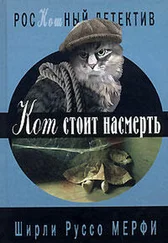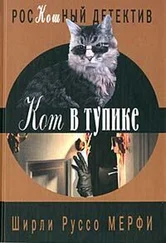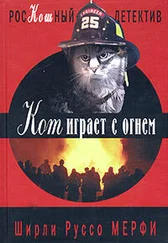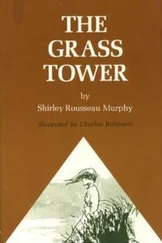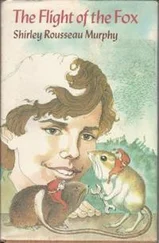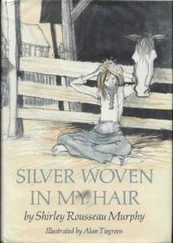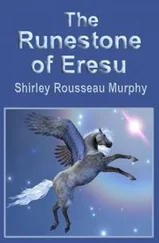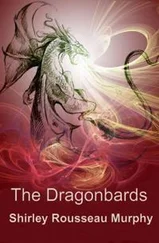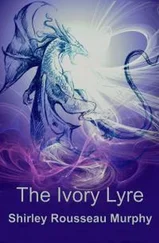The evening light fell softly through the window to catch at the bells. Did they carry enchantments? There was nowhere else to look except at bells, or at the white-haired woman. Then she saw a bronze bell standing alone on the mantle, and a chill touched her. It was an ugly thing: a rearing bitch-wolf holding a bell in its mouth. She did not know why it terrified her, but she looked away from it, shuddering. She thought of the child she carried and stared at the woman sitting motionless against the stone mantle. Something dark in Tayba stirred then, some hint of things unspoken, things she did not want to touch or acknowledge, and she pushed them away from her mind in angry haste. The woman spoke.
“I am Gredillon.” Her voice was clear, precise. “I am called bell woman.” Her white hair seemed not to denote age so much as some strange condition of being. She looked long at Tayba, a detached, appraising look that did nothing at all to ease Tayba’s awe of her. Did the woman always have that piercing, unnerving gaze? “You will bear your child here.”
Tayba continued to stare.
“I will teach him what he needs to learn. I will teach you both, likely, for you are in desperate need of learning.”
Tayba scowled.
“And one day he will lead you, this child you carry. One day he will lead men.”
“No child will lead me! I do not even want this child!”
“Nonetheless, he will be born. And he will lead you into the Ring of Fire, and there you will find what you are made of. It is something you need badly to learn.”
“No one goes into the Ring of Fire. And how do you know what I need?”
“You will go there,” Gredillon said, ignoring Tayba’s question. “Your brother Theel went, as far as the foot of it. Is it not true he followed the raider Venniver to the foot of those mountains to build a new city?”
“I suppose so. It’s what he said. Who knows where Theel is.”
“If he followed the dark leader Venniver, he did as he said he would do.”
“If he followed Venniver to that place, he’s probably dead.” She laid her pack on the table. “Why did you bring me here?” Then, remembering the sow’s milk and honey that she had set down absently, “And why did you want those? Do you expect me to drink sow’s milk, old woman?”
Gredillon’s smile was unexpected. It softened her angled face. “The sow’s milk makes good cheese. The honey is to sweeten my tea.” Her mouth twitched with amusement, but her dark eyes flashed. “Honey will not be wasted on you, young woman! It would turn bitter as dolba root in your mouth!”
“Why did you bring me here?”
“I did not bring you. I offered you sanctuary. Without me you would have had to return to your father’s house and beg a herder’s shack in which to bear your child.”
“You bid me here,” Tayba argued. “You told that gutter woman—what do you want of me?”
“I want nothing of you. I want only the safety of the child you carry. I want the safe birthing of your son.” Gredillon rose and turned to the mantle so the bronze bell was cloaked in her shadow. When she turned back to face Tayba, her eyes were so fierce Tayba could hardly look. “I want him born safely, and you know nothing of birthing a child. You could die birthing this child and he could die with you. You are too young, they breed them too young. That is why the young women die, it is not from the will of the gods.” She clasped her hands lightly. “This child must be born in safety, and you must live to care for him. But mark you this. If I must choose between you, one life to save, I will save the boy.” She motioned to a low couch on the other side of the hearth. “You are too weary to contain such anger. Lie down now and sleep.”
Tayba felt the weariness then, like a tide. She did as she was bidden, though against her will, turned her face to the wall away from Gredillon and, against her will, slept at once. And in sleep the wolf bell burned darkly through the weft of her dreams, the bitch-wolf rearing tall, her mouth open in a toothy leer.
*
She birthed the child with Gredillon’s help as Ere’s two moons hung thin as knives low on the horizon, birthed painfully through the length of the night with the pains so white hot she thought she would die of them. She heard Gredillon’s words over and over, If I must choose between you, I will save the boy. Tayba hated the baby for this and for the pain he caused her, wanted only to be free of him, fought to be free of him. When she screamed with the pain, Gredillon stuffed a rag in her mouth to bite on.
Gredillon’s thin, long hands held an earthen cup to Tayba’s lips with potions, straightened her covers, or removed them when Tayba burned with the heat of her effort. The thin, patient woman was there as the pain came and went; the candlelight caught at her white hair and at the bells, and in delirium Tayba thought the bells were huge and saw Gredillon’s white hair flowing through them and Gredillon’s long hands reaching, reaching. . . .
At last, as morning came with a pale whisper of light across the little window, so came the babe slipping out onto the white goat blanket Gredillon held for him and crying lustily in the bright room. At once Gredillon laid the wolf bell beside him; and at once the baby clutched at it.
Tayba fed him, exhausted and half-gone in sleep, and did not look at the boy well until she woke at midday. Then she saw with shock that he was marked, the mark of the Seer, for he had hair like flame. Hair red as sable-vine. Burning red against the white goat blanket.
Gredillon ignored Tayba’s dismay. “He is a Seer born,” she said triumphantly.
“A Seer born, and marked,” Tayba replied. “It can’t be my blood. I have no blood of Seers.”
“Do you not?” Gredillon looked hard at her, and again Tayba felt discomfort, some knowledge forcing itself into her mind that she did not want there. Angrily she put it away from her.
“And why must he have red hair? Not all Seers are so marked!”
“I grant you, he will be easily known for what he is unless he is disguised. All Seers are not so marked, but all with red hair are surely Seers. Well, we must take care of that when the time comes.” Gredillon raised her face to the slanting light of the westerly sun that flooded the room, then touched the wolf bell that stood now beside the baby’s sapling crib. “What is that sullen look, young woman? You do not know, or even care, what you have borne here. This child— this child and the mystery he seeks may well reshape the history of Ere!” And without consulting Tayba, “You will name him Ramad, Ramad means ‘Of the Mountain,’ and surely this child is of the mountain. He is a love child—a spite child—conceived and born on Scar Mountain.”
Tayba held the baby close to her. Ramad? Ram? It seemed a strange name. She stared at Gredillon. “Who are you? How can you take the liberty even of naming him? What—what do you intend for him? Why should you . . . ?” And suddenly she felt the agony the babe would one day know, born a Seer—born to rule or to be killed by Seers. And she held him and nursed him tenderly then and loved his small, helpless body that curved so easily to her own. But she stared past him to Gredillon. “Who are you?” she repeated.
“Who am I? I come out of Pelli,” Gredillon said, “where the Seers rule so strongly. From this mountain I have watched the Seers of Zandour grow stronger, after generations of weakness. Soon again they will be as strong as the Pelli an Seers. As cold and unbending. One day soon Seers may rule all the coastal countries.” She rose to slice cold meat for Tayba, and new bread, and watched the girl eat as if she had not seen food in days. “There is little love between the Zandourian Seers and the Pellian, but their ways are too much alike for comfort. The simple days on Ere are past, young woman. The days when there were no nations, but only roving tribes with the land between falling to one group then another, then belonging to no one as the volcanoes swept down.
Читать дальше
![Ширли Мерфи The Shattered Stone [calibre] обложка книги](/books/436059/shirli-merfi-the-shattered-stone-calibre-cover.webp)
